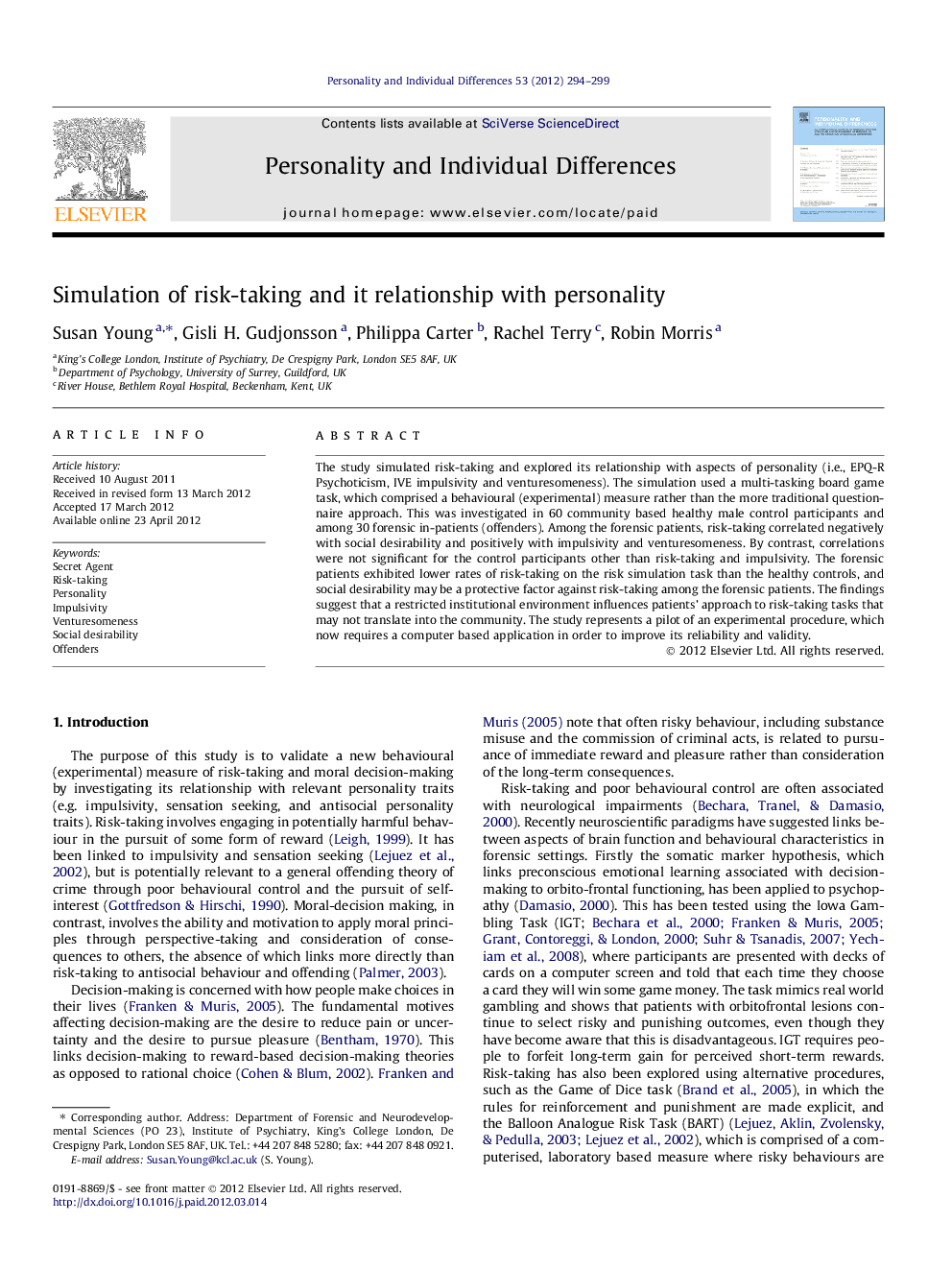| Article ID | Journal | Published Year | Pages | File Type |
|---|---|---|---|---|
| 891017 | Personality and Individual Differences | 2012 | 6 Pages |
The study simulated risk-taking and explored its relationship with aspects of personality (i.e., EPQ-R Psychoticism, IVE impulsivity and venturesomeness). The simulation used a multi-tasking board game task, which comprised a behavioural (experimental) measure rather than the more traditional questionnaire approach. This was investigated in 60 community based healthy male control participants and among 30 forensic in-patients (offenders). Among the forensic patients, risk-taking correlated negatively with social desirability and positively with impulsivity and venturesomeness. By contrast, correlations were not significant for the control participants other than risk-taking and impulsivity. The forensic patients exhibited lower rates of risk-taking on the risk simulation task than the healthy controls, and social desirability may be a protective factor against risk-taking among the forensic patients. The findings suggest that a restricted institutional environment influences patients’ approach to risk-taking tasks that may not translate into the community. The study represents a pilot of an experimental procedure, which now requires a computer based application in order to improve its reliability and validity.
► The authors developed a board game measure of risk-taking and moral decision-making. ► Data were collected on forensic patients and healthy controls. ► Risk-taking correlated positively with impulsivity and venturesomeness. ► Risk-taking correlated negatively with social desirability. ► A restricted environment may influence patients’ approach to risk-taking tasks.
